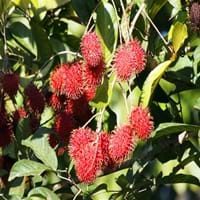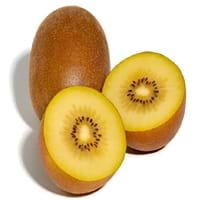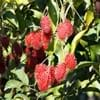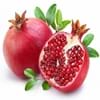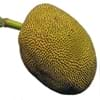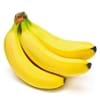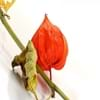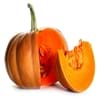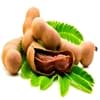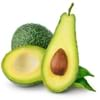Health Benefits
Anti-oxidant properties, Boosts immune system, Skin rejuvenation, Strengthening of bones
Asthma treatment, Heart care, Improves stomach health, Regulation of heart rate, Treatment of skin Diseases
General Benefits
Antiseptic properties, Cures headache, Removes waste from kidney
Boosts immune system, Controls blood pressure, Eye care, Helps in weight loss
Skin Benefits
Hydrates skin
Brightens and lightens complexion, Heals sunburn, Reduces wrinkles, Skin rejuvenation, Treatment of acne, Treatment of dark spots, Treatment of skin diseases
Hair Benefits
Good conditioner
Prevents hair loss, Promotes longer and healthier hair, Treatment of dandruff
Allergy Symptoms
Chest pains, Rhinitis, Wheezing
Abdominal pains, Anaphylaxis, Breathing difficulty, Itching in tongue and other parts of mouth, Itching sensation in throat, Swelling of mouth, tongue or lips, Vomiting
Side Effects
Unknown
Allergic reaction, Diarrhoea, Skin rash, Possibly unsafe during pregnancy
Best Time to Eat
As a snack in the late afternoon, Don't consume at night and before bed, Eat the fresh ones, avoid mixing with any other foods, don't eat after meal., Morning time (before lunch)
Any time except an hour after meal
Vitamin B5 (Pantothenic Acid)
Vitamin C (Ascorbic Acid)
Vitamin K (Phyllochinone)
Phytosterol
Not Available
Calories in Fresh Fruit with Peel
Calories in Fresh Fruit without Peel
Not Available
Not Available
Calories in Frozen Form
Not Available
Calories in Jam
Not Available
Calories in Pie
Not Available
Type
Tree fruit, Tropical
Tropical
Season
Early summer, Early winter, Late fall, Late spring
Spring, Summer, Winter
Varieties
Rongrien, Chompu, Rapiah, Bingjai and Lebak Bulus
Qing Yuan #27, Qing Yuan #29, Qing Yuan #6 and Huang Yan
Color
Coral red, Yellow
Brown, Yellow
Inside Color
Greyish-white
Yellow
Soil Type
Clay, Loam
Well-drained
Climatic Conditions
Humid
Cold, Sunny
Facts about
- Oils extracted from its seeds is used to make soaps and candles.
- 'Rambut' means hairy in Malay.
- It makes the best hair mask.
- Seeds are edible and healthy too.
- The name Kiwi is due to its resemblance with 'Kiwi' bird.
- This variety of Kiwi was developed by New Zealand, it is not fuzzy on the outside and it has a taste reminiscent of the mango fruit.
Top Producer
Thailand
Italy
Other Countries
Africa, India, Indonesia, Malaysia, Philippines, Sri Lanka
Chile, France, Greece, Iran, Japan, New Zealand, Portugal, Turkey, United States of America
Top Importer
Singapore
United States of America
Top Exporter
Thailand
New Zealand
Botanical Name
Nephelium lappaceum
Actinidia chinensis
Synonym
Rambota
Not Available
Subkingdom
Tracheobionta
Tracheobionta
Division
Tracheophyta
Magnoliophyta
Class
Magnoliopsida
Magnoliopsida
Subclass
Rosidae
Dillenhidae
Order
Sapindales
Ericales
Family
Sapindaceae
Actinidiaceae
Genus
Nephelium
Actinidia
Species
N. lappaceum
A. chinensis
Generic Group
Not Available
Kiwi
Difference Between Rambutan and Gold Kiwi
We might think that Rambutan and Gold Kiwi are similar with respect to nutritional value and health benefits. But the nutrient content of both fruits is different. Rambutan and Gold Kiwi Facts such as their taste, shape, color, and size are also distinct. The difference between Rambutan and Gold Kiwi is explained here.
The amount of calories in 100 gm of fresh Rambutan and Gold Kiwi with peel is 69.00 kcal and 60.00 kcal and the amount of calories without peel is Not Available and Not Available respectively. Thus, Rambutan and Gold Kiwi belong to and category.These fruits might or might not differ with respect to their scientific classification. The order of Rambutan and Gold Kiwi is Sapindales and Ericales respectively. Rambutan belongs to Sapindaceae family and Gold Kiwi belongs to Actinidiaceae family. Rambutan belongs to Nephelium genus of N. lappaceum species and Gold Kiwi belongs to Actinidia genus of A. chinensis species. Beings plants, both fruits belong to Plantae Kingdom.
